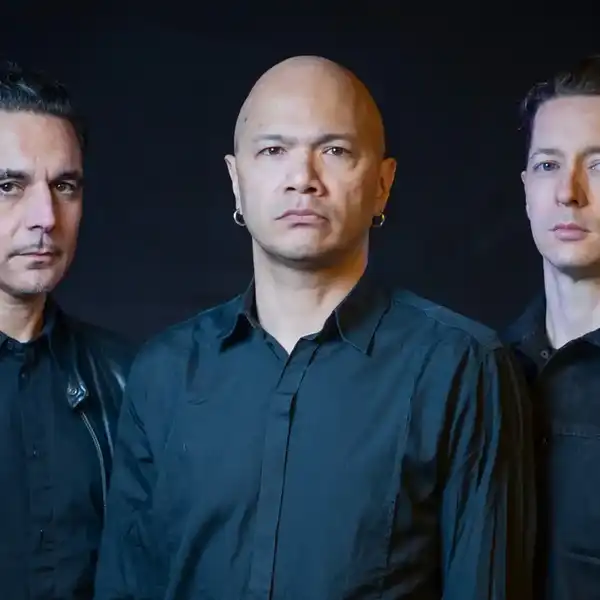Re:Sound Fights For Musicians' Rights And Payments
Led by President Ian MacKay, the rights org has a team of committed people working incredibly hard to improve the lot of musicians, record labels large and small and fighting the good fight on their behalf.

By David Farrell
Musicians, are you feeling financially pinched?
Is your income taking a hit in physical and digital royalty declines?
Frustrated, and wondering how to make back the shortfall?
Well, there’s a music licensing company that can help in a big way.
Re:Sound is a not-for-profit that collects public performance royalties for sound recordings from a domestic and global network of sources, paying out to musicians, background performers, and record labels.
Behind Re:Sound is a team of 50 headed by President Ian MacKay – a former Sony Music EVP and artist lawyer at McCarthy Tétrault who has been leading the organization for the past nine years with vision and a determination to better your income and defend your rights. “Everything we do is for the performers and labels we represent,” says MacKay. “Whether it’s fighting on their behalf for fairer rates, demonstrating the value of music to business, or collecting and distributing royalties as efficiently as possible.”
In 2016, Re:Sound collected nearly $40M in neighbouring rights that are split equally in two: 50% to performer rightsholders, and 50% to maker rightsholders. Anyone who made an audible contribution to a recording may be eligible for remuneration as a performer. This can include performing artists, background singers, session musicians, even conductors. The recording’s copyright owner (usually a record label) is eligible as a maker. If you’re the owner and the artist, you can claim both remunerations.
These neighbouring rights royalties are an increasingly important source of income for performers and labels; and the good news is that the Re:Sound revenues are almost guaranteed to continue dramatically increasing in the next several years if MacKay and his team have any say in the matter. Since 2008, Re:Sound’s revenues for neighbouring rights have increased from $ 16.4M, in 2006, to $41.2M in 2016.
Re:Sound is pushing hard at home for increased revenues from terrestrial broadcasters and music-streaming platforms, while they continue to collect through international partnerships with organizations like SoundExchange in the US, GVL in Germany, and RIAJ in Japan.
Of the former, MacKay is quick to point out that Re:Sound is arguing for an amendment to the Copyright Act to end the exemption that FM broadcasters now enjoy from paying royalties to musicians and sound recording owners on the first $1.25M in revenues per station. He points out that the exemption is inequitable because songwriters and music publishers aren’t penalized by a similar provision.
That’s a lot of money floating in the ether that songwriters and publishers have been collecting that the legislative constraints of The Copyright Act have failed to make available to performers and sound recording owners.
Re:Sound and various other royalties’ collectives separately have proposed tariffs to the Copyright Board to “normalize” music-streaming tariffs with rates paid in other global jurisdictions. The current tariff, set by the Board, is deemed to be unacceptable and Re:Sound is fighting to increase the amount. In fact, The Copyright Board of Canada has set Re:Sound’s non- and semi-interactive webcasting rates at less than 10% of those in the U.S. and other developed countries.
Re:Sound is doing a lot to increase your income in front of the Board, but there is a considerable list of other achievements that led to processing nearly 11.5 million tracks in 2016 that helped to spin off roughly $40M to artists and record labels.
One of the achievements that MacKay is justifiably proud of is Project Revelation. In keeping with international standards, Re:Sound worked with CONNECT Music Licensing to have their close to 2,700 membership receive their public performance and private copying royalties directly from Re:Sound.
MacKay recognized the opportunity to pay additional monies to rightsholders by improving the data coming into the organization by eliminating duplication between Re:Sound and CONNECT. Working closely with CONNECT, Re:Sound has improved the quality of its data, resulting in a reduction in overall costs by 1/3rd, and improved distribution times. The project has continued through merging the CONNECT and Re:Sound databases to eliminate data duplication. In its first year, the results of Project Revelation have seen an additional $2.6M being made available to record labels and performers.
Following on from this project, Re:Sound and Music Canada teamed up with Bell Media in 2017 to implement a data standardization pilot project with CHUM-FM in Toronto. Re:Sound had fought before the Copyright Board to require broadcasters to report their music logs for 365 days a year (previously only 14 days). This has never been made a requirement by the Copyright Board. This resulted in a huge increase in data. Re:Sound, Music Canada and Bell worked together to help Bell stations auto-ingest cleaner and more complete data across its 100+ stations nationwide so that this data could then be passed on to SOCAN, Re:Sound and other collective societies.
This was done through an expansion of data compliance with implementing ISRC (International Standard Recording Codes) – the gold standard for audio and music video recordings.
Improved data and more logs means greater accuracy in identifying payments to rightsholders, and a more comprehensive sweep of repertoire that will capture everything, including independent and regional artists. It’s a win-win situation – it frees up time for station managers, improves distribution timelines, and gets artist paid faster and more efficiently.
These codes are primarily used to identify and catalogue individual songs (tracks) on an album. They allow you to get paid for digital music sales by ensuring that your royalties are correctly tracked.
In 2018 Re:Sound and Music Canada will work with other radio groups to roll-out this project across remaining Canadian terrestrial broadcasters and their online platforms.
Re:Sound is also partnering with other music industry organisations in the licensing of the tens of thousands of businesses that use recorded music. MacKay points to another outreach project that is the creation of a single portal for licensing music for public performance, when used in public, whether it is used as background music in a convention, or for dancing at a wedding reception. Partnering with SOCAN, which represent the rights of songwriters and music publishers, the portal offers a one-stop shop for both Re:Sound and SOCAN customers The result is a client-friendly process that will make it easier for businesses to obtain all the licenses they need and will increase revenue for rightsholders.
Another area of interest for Re:Sound in 2018 is the recently announced consultation process on reforming the Copyright Board, a body which has come under criticism for how long the process takes. In August 2017, SOCAN sought a judicial review of the Board’s decision for rates for online music services – all of which suggest that the current regime for determining tariff rates is likely to be overhauled and made more responsive to rights holders and users
“Timeframes that may have worked in the past, no longer do,” says MacKay. “Right holders and music users alike are looking for more certainty.” Re:Sound intends to ensure rights holders are at the forefront.
If you’re not already signed up to collect Re:Sound royalties, you can do so through one of Re:Sound’s member organizations (Artisti, ACTRA-RACS or MROC for performers, and CONNECT or SOPROQ for labels). Or, you can sign up directly with Re:Sound.
This is a company of committed people working incredibly hard to improve the lot of musicians, record labels large and small and fight the good fight on their behalf. They deserve all the credit they get, and some.

















